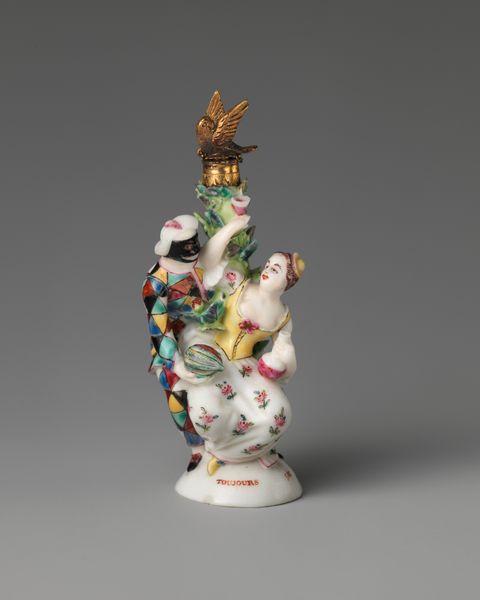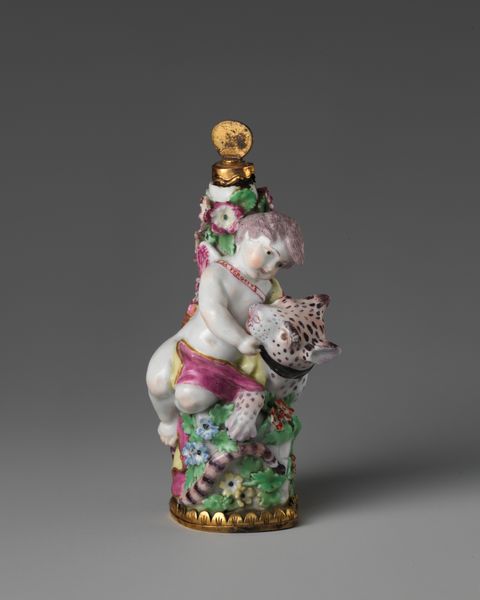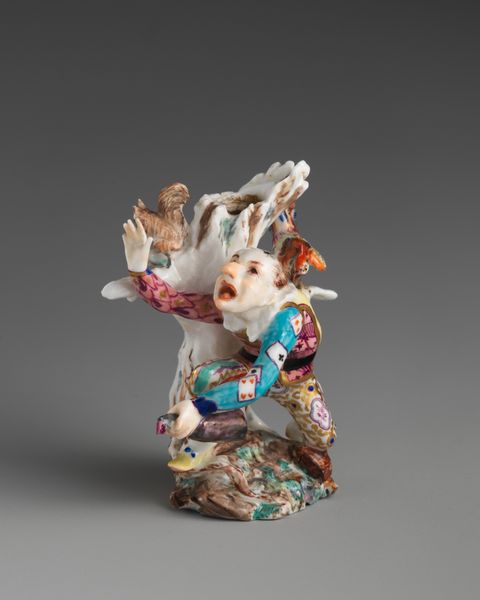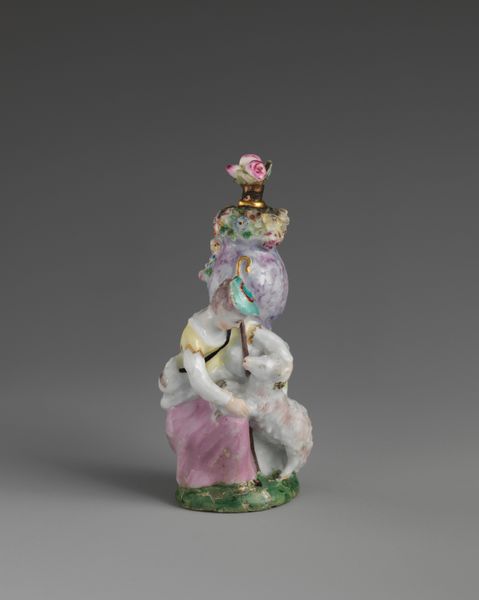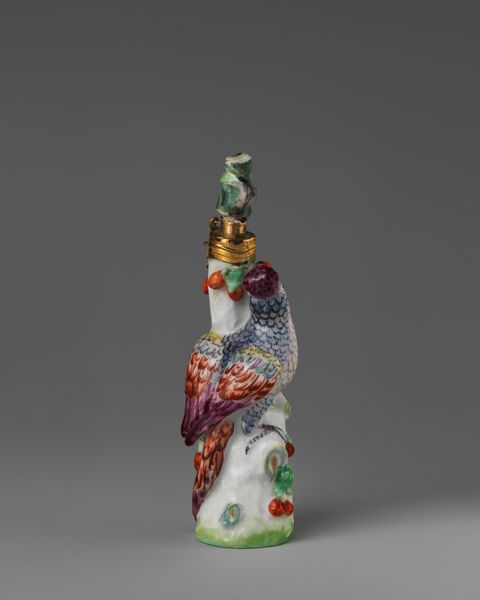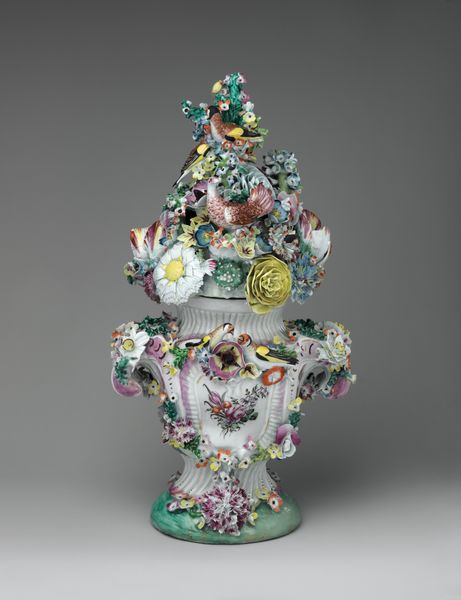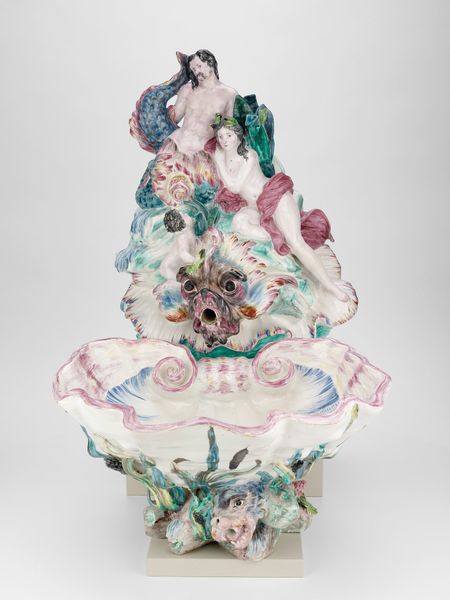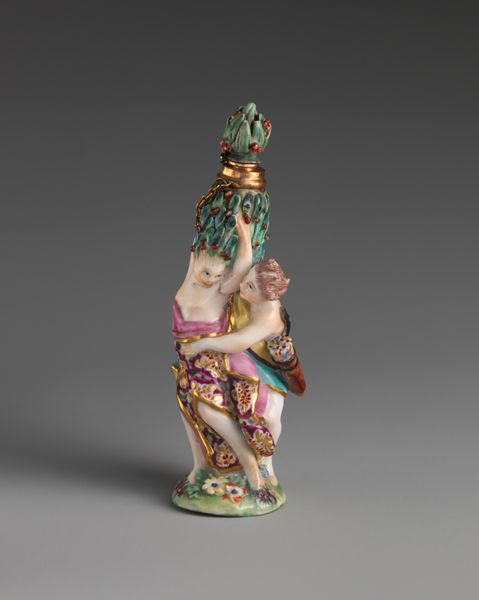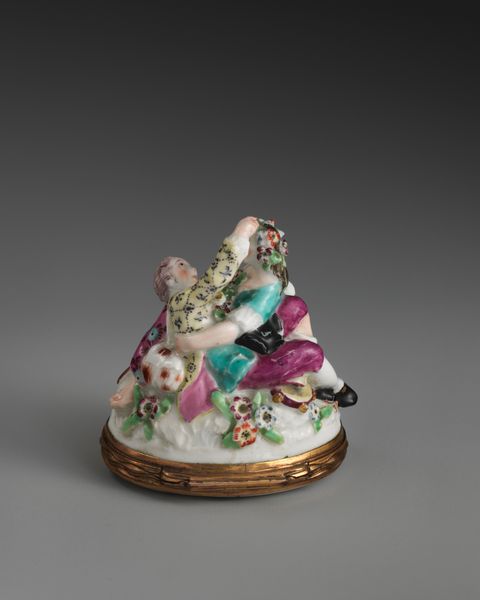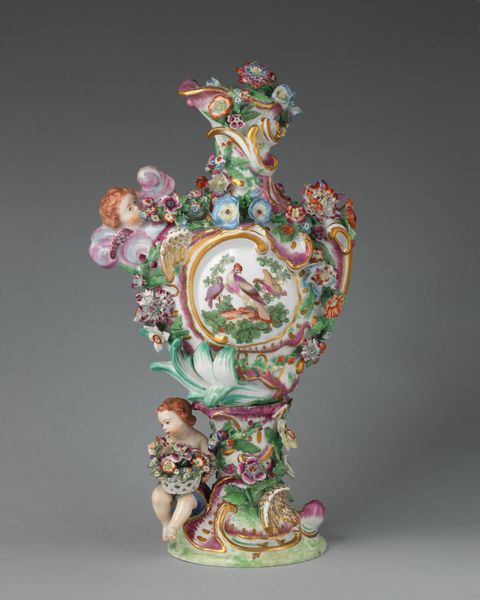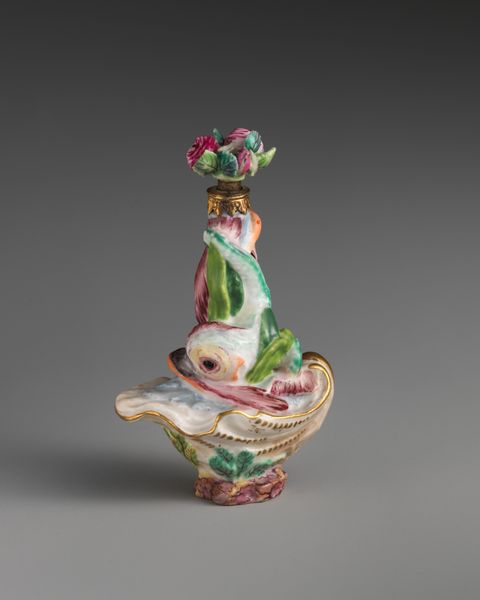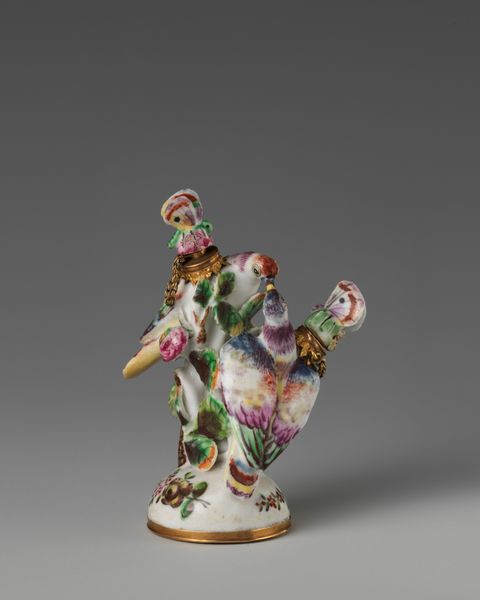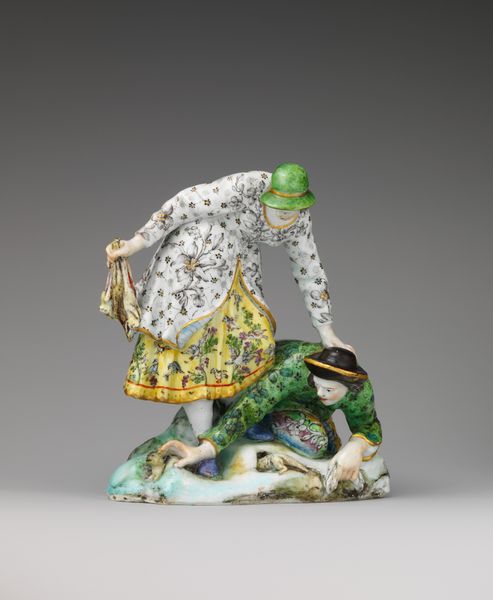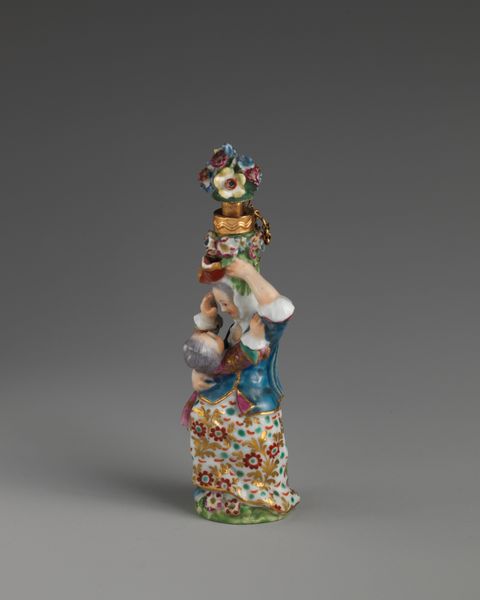
ceramic, porcelain, sculpture
#
allegory
#
ceramic
#
porcelain
#
figuration
#
female-nude
#
cupid
#
sculpture
#
decorative-art
#
nude
#
male-nude
#
rococo
Dimensions: 10 × 8 7/16 in. (25.4 × 21.4 cm)
Copyright: Public Domain
This watch stand was made in Tournai, now part of Belgium, from soft-paste porcelain sometime in the 1700s. At that time, porcelain was the cutting edge of aristocratic taste, the kind of thing found in the palaces of Europe. Looking at it, we see a classical scene of reclining figures taken from mythology or allegory. The circular opening on top would have held a watch, an essential piece of technology for the wealthy classes, a clear sign of status and leisure. This object combines the classical, the natural, and the technological in a way that speaks to the values of the European Enlightenment. But it also marks the consolidation of power through the art market. Art historians use probate inventories, trade records, and museum archives to reconstruct the historical context of objects like these. Through them, we can better understand art as something that is always embedded in social and institutional structures.
Comments
No comments
Be the first to comment and join the conversation on the ultimate creative platform.
